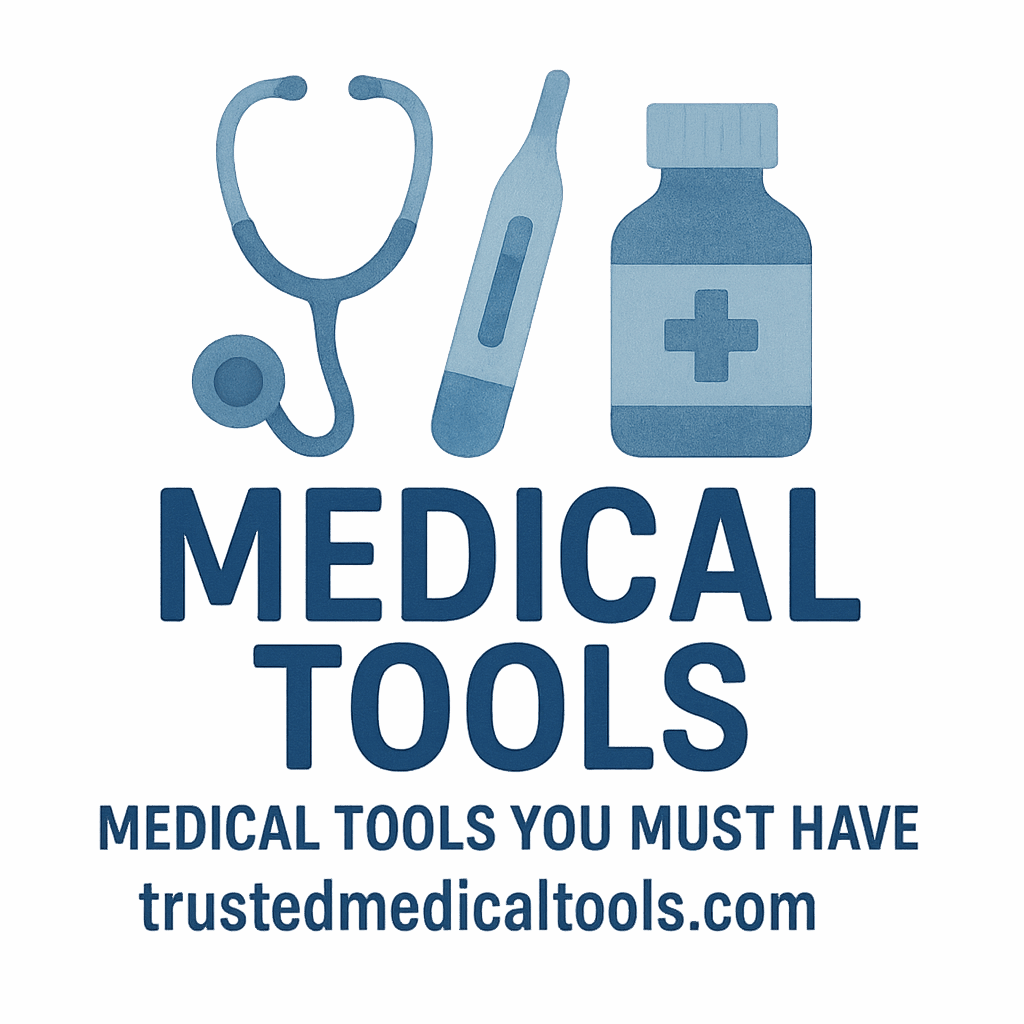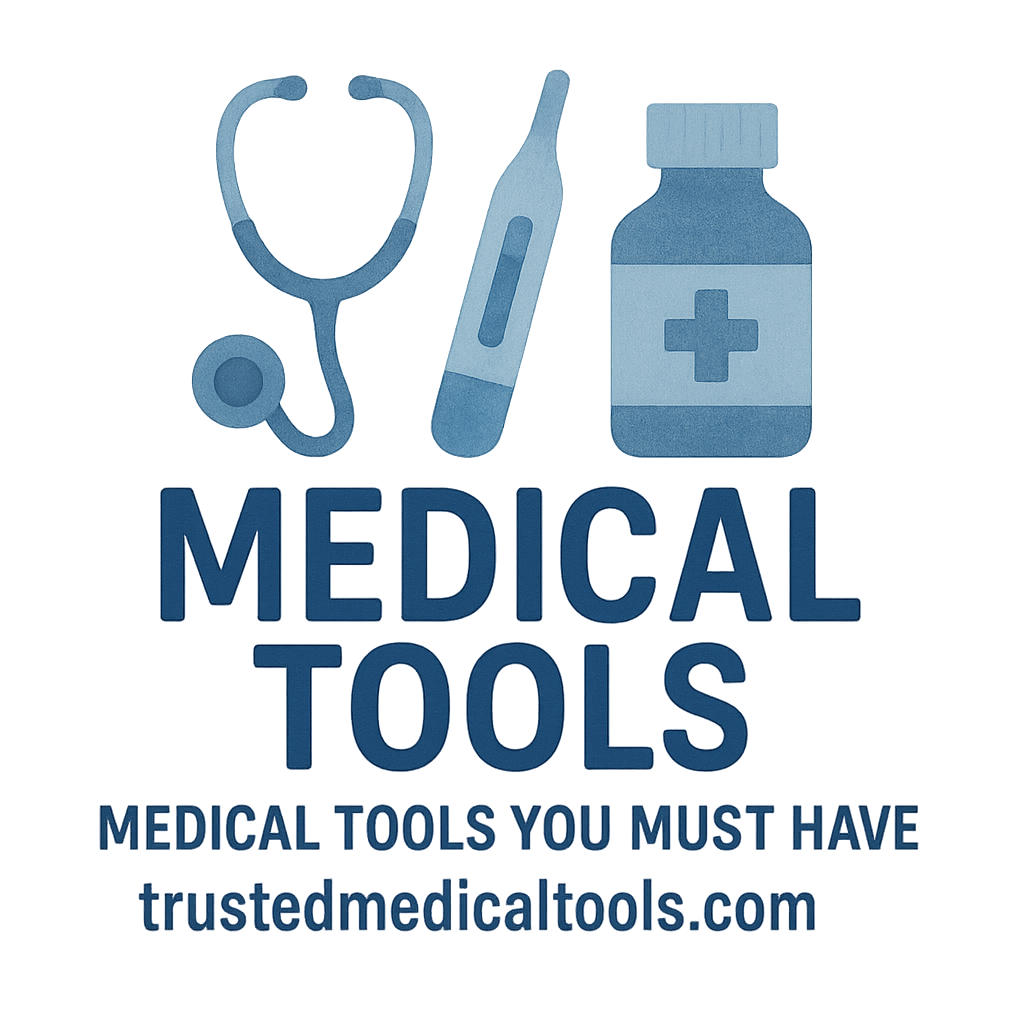Introduction: Why Every Home Needs a Medical Kit
When it comes to keeping your family healthy and safe, having the right medical tools at home is essential. Whether you’re dealing with a minor cut, a sudden fever, or an ongoing health condition, having access to basic medical tools can save time, stress, and even lives. With a well-equipped home medical kit, you can address many common health issues without rushing to the doctor. In this article, we’ll explore the 10 must-have medical tools that every home should have.
1. Digital Thermometer: Quick and Accurate Readings
A digital thermometer is an essential item in any home medical kit. It’s the go-to tool for monitoring body temperature during illness or after an injury. Digital thermometers provide quick, accurate readings, and they’re easy to use, making them suitable for everyone in the family.
How to Choose the Best Digital Thermometer
When selecting a digital thermometer, look for one that provides quick readings, is easy to clean, and has a reliable display. Some thermometers are designed for oral, rectal, or underarm use, while others may offer additional features like a fever alarm. It’s important to choose a thermometer that suits your needs and comfort level.
Top Recommended Thermometers for Home Use
- ThermoPro TP01A Digital Thermometer: Accurate readings and a 10-second response time.
- iProven DMT-489 Dual Mode Thermometer: Measures temperature orally, rectally, or underarm.
- Kinsa Smart Thermometer: Syncs with your phone to track symptoms and temperature history.
2. First-Aid Kit: Be Prepared for Emergencies
Emergencies can happen at any time. A well-stocked first-aid kit is crucial for treating cuts, burns, sprains, and other minor injuries. Having the right supplies can help you manage these situations until professional medical help is available.
Essential Items in a First-Aid Kit
A basic first-aid kit should include:
- Bandages (various sizes)
- Gauze pads and adhesive tape
- Antiseptic wipes
- Tweezers for splinters
- Scissors
- Pain relievers (ibuprofen, aspirin)
- Elastic bandage (for sprains)
- A thermometer (digital or other)
How to Organize Your First-Aid Kit
Organize your first-aid kit by grouping items into categories such as bandages, medications, and cleaning supplies. Label everything clearly so you can quickly find what you need in an emergency.
For more tips on first-aid, visit our First Aid Guide.
3. Blood Pressure Monitor: Keep Track of Your Heart Health
A blood pressure monitor is a must-have tool for anyone with hypertension, heart disease, or a family history of cardiovascular issues. Regular monitoring can help detect early signs of high blood pressure, which often shows no symptoms.
Why Blood Pressure Monitoring is Essential
High blood pressure is a “silent killer,” often causing serious complications like strokes or heart attacks. Monitoring your blood pressure at home allows you to keep track of any irregularities and report them to your doctor.
Best Blood Pressure Monitors for Home Use
- Omron Platinum Blood Pressure Monitor: Accurate and easy to use.
- Wellue Blood Pressure Monitor: Bluetooth-enabled for easy tracking.
- iHealth No-Touch Blood Pressure Monitor: A great option for families with children or elderly individuals.

4. Stethoscope: Listen to Your Body’s Rhythms
A stethoscope is a valuable tool for listening to heartbeats, lung sounds, and other body rhythms. While they are primarily used by doctors, having one at home can help you monitor health changes and even detect irregularities before they become serious.
How to Choose the Right Stethoscope for Home Use
Look for a stethoscope with good sound quality and comfort. If you’re a beginner, choose a lightweight model that’s easy to handle. Many stethoscopes also come with adjustable ear tips for a more personalized fit.
Top Stethoscopes for Home Healthcare
- 3M Littmann Classic III Stethoscope: Offers excellent sound quality.
- MDF Acoustica Stethoscope: Budget-friendly but reliable.
- Omron Sprague Rappaport Stethoscope: Great for both beginners and professionals.
For more tips on how to choose the best medical tools, check out our buying guide.
5. Glucometer: Monitoring Diabetes Made Easy
For people living with diabetes, a glucometer is a lifesaver. This simple device allows you to track blood sugar levels at home, making it easier to manage your condition and adjust your lifestyle accordingly.
Why Every Diabetic Needs a Glucometer at Home
Managing diabetes requires regular monitoring of blood glucose levels. A glucometer helps you stay on top of your condition and prevent dangerous spikes or drops in blood sugar.
Best Glucometers for Accurate Readings
- Accu-Chek Guide: Known for its easy-to-read display and accuracy.
- OneTouch Verio Flex: Compact and connected to your smartphone for better tracking.
- Freestyle Libre: Continuous glucose monitoring for greater convenience.
6. Pulse Oximeter: Measure Oxygen Levels in an Instant
A pulse oximeter is a small device that measures the oxygen saturation in your blood. It’s especially useful for people with respiratory issues, heart conditions, or anyone who might experience sudden shortness of breath.
What is a Pulse Oximeter and How Does it Work?
The pulse oximeter clips onto your fingertip and uses light to measure oxygen levels. It’s an essential tool for those with chronic respiratory conditions, athletes, or anyone who wants to monitor their lung function.
Top Pulse Oximeters for Home Use
- Wellue Pulse Oximeter: Affordable and highly accurate.
- iHealth Pulse Oximeter: Compact and easy to use.
- Nonin Onyx Vantage 9590: Professional-grade for more serious monitoring.
7. Heating Pad: Soothe Muscle Pain and Discomfort
A heating pad is a great tool for soothing sore muscles, menstrual cramps, and other aches and pains. Heat therapy can help improve circulation and promote healing.
Benefits of Using a Heating Pad
Heating pads can provide quick relief for conditions like muscle spasms, back pain, and arthritis. They’re also great for relaxation and stress relief.
Best Heating Pads for Pain Relief at Home
- Pure Enrichment Heating Pad: Offers multiple heat settings for customized relief.
- Sunbeam Heating Pad: Soft and large, perfect for targeting back pain.
- MediHeat Therapeutic Heating Pad: Ideal for use on stiff muscles or joints.
8. Thermometer for Ear and Forehead
When it comes to measuring body temperature quickly and efficiently, an ear and forehead thermometer is a fantastic option. These thermometers are non-invasive, making them ideal for children and the elderly.
Why an Ear and Forehead Thermometer is Convenient
Ear and forehead thermometers are faster than traditional thermometers and don’t require any physical contact inside the mouth or under the armpit. This makes them a popular choice for families with young children.
Top Choices for Ear and Forehead Thermometers
- Braun No Touch + Forehead Thermometer: Accurate and quick readings.
- iProven Digital Thermometer: Dual-mode for ear and forehead use.
- Withings Thermo: Offers professional-grade accuracy and an easy-to-read display.
9. Medical Scissors: Versatile Tools for Various Situations
Medical scissors are essential for cutting bandages, gauze, and clothing in an emergency. They’re specially designed to cut through tough materials without causing injury.
Why Medical Scissors Are Essential in Every Home
From cutting adhesive strips to safely removing clothing during an emergency, medical scissors are versatile and practical tools that can make a big difference in a crisis.
Best Medical Scissors for Home Use
- DMT 710 Surgical Scissors: Sharp and durable.
- Medi-Temp Medical Scissors: Ergonomic handle for comfort.
- Fisher Scientific Medical Shears: Multi-purpose scissors for first-aid and emergency situations.
10. Eye Wash Station: Keeping Your Eyes Safe
An eye wash station is a must-have for any home that involves exposure to chemicals, dust, or other harmful materials. It’s also essential for people who wear contact lenses.
When to Use an Eye Wash Station at Home
If chemicals or foreign particles get into your eyes, immediate rinsing is necessary to prevent irritation or injury. An eye wash station provides the necessary tools to flush your eyes safely.
Best Eye Wash Stations for Home Use
- Flents Eye Wash Station: Complete with saline solution and a clear guide for use.
- The RinseKit Portable Eye Wash: Compact and portable for easy access.
- Pioneer Eye Wash Station: Includes eyewash solution and first-aid items.
Conclusion: Creating a Safe and Well-Prepared Home Healthcare System
Having these essential medical tools at home ensures that you’re prepared for any health emergency. By investing in quality tools like thermometers, blood pressure monitors, and first-aid kits, you can provide immediate care and peace of mind for your family. Take the time to stock your home with these must-have medical tools, and you’ll be ready to handle most health situations that arise.
Frequently Asked Questions (FAQs)
1. How Often Should I Check My Blood Pressure at Home?
It’s a good idea to check your blood pressure at least once a week, or more frequently if you have a history of hypertension or other heart conditions.
2. What Should Be in My Home First-Aid Kit?
A well-stocked first-aid kit should include bandages, antiseptic wipes, gauze, tweezers, scissors, and pain relievers. Check out our first-aid guide for more details.
3. Can I Use a Stethoscope at Home?
Yes, stethoscopes are great for monitoring heartbeats and lung sounds. With practice, anyone can use a stethoscope to detect irregularities.
4. How Can I Prevent Diabetes Without a Glucometer?
While a glucometer helps monitor your blood sugar, lifestyle changes like a balanced diet and regular exercise are essential for managing diabetes.
5. Are Pulse Oximeters Reliable for Home Use?
Yes, pulse oximeters are reliable tools for monitoring oxygen levels. Just ensure you use them according to the instructions for accurate readings.
6. What is the Best Way to Treat Muscle Pain at Home?
A heating pad is one of the best ways to treat muscle pain. Combine it with gentle stretching and rest for faster recovery.
7. Why is an Eye Wash Station Important for Home Safety?
An eye wash station is vital for quickly flushing out harmful substances from your eyes in case of accidents involving chemicals or irritants.


